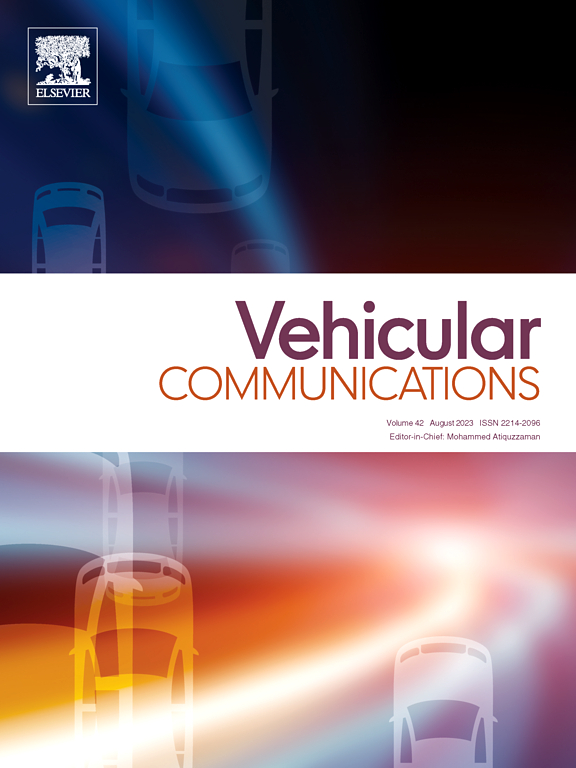MetaCAN:一种基于优化自适应混合元启发式的CAN总线安全入侵检测系统
IF 6.5
2区 计算机科学
Q1 TELECOMMUNICATIONS
引用次数: 0
摘要
控制器局域网(CAN)总线是一种基于消息的协议,广泛应用于现代车辆中,用于促进各种电子控制单元(ecu)之间的通信。然而,其过于简单的设计缺乏基本的安全措施,使其极易受到网络攻击。这些漏洞对车辆安全构成了重大风险,强调了实施有效入侵检测系统(IDS)的迫切需要。因此,本文提出了一种基于机器学习的IDS,通过自适应混合元启发式方法进行优化,称为MetaCAN,以保护CAN总线。MetaCAN利用粒子群优化(PSO)的快速收敛和布谷鸟搜索(CS)的鲁棒全局搜索的互补优势,确保有效的超参数调谐和模型优化。MetaCAN使用三个真实世界的数据集进行评估,包括生存分析,汽车黑客攻击;《国防挑战2020》和OTIDS。与传统的二进制检测系统不同,MetaCAN通过识别五种不同的攻击类型提供多类攻击检测,包括拒绝服务(DoS)、模糊攻击、伪装攻击、故障攻击和重放攻击。此外,通过引入时间间隔和ID重复计数两个有效特征的特征工程过程,提高了系统的检测精度。实验结果表明,MetaCAN始终优于针对相同数据集的现有IDS解决方案,使其成为在实际车辆环境中保护CAN总线的有前途的解决方案。本文章由计算机程序翻译,如有差异,请以英文原文为准。
MetaCAN: An optimized adaptive hybrid metaheuristic-based intrusion detection system for CAN bus security
The Controller Area Network (CAN) bus is a message-based protocol widely used in modern vehicles to facilitate communication between various Electronic Control Units (ECUs). However, its simplistic design lacks fundamental security measures, making it highly susceptible to cyberattacks. These vulnerabilities pose significant risks to vehicle safety, highlighting the critical need for implementation of effective intrusion detection systems (IDS). Therefore, in this paper, a machine learning based IDS optimized through an adaptive hybrid metaheuristic approach, named MetaCAN, is proposed to secure the CAN bus. MetaCAN leverages the complementary strengths of particle swarm optimization (PSO) for fast convergence and cuckoo search (CS) for robust global search to ensure effective hyperparameter tuning and model optimization. MetaCAN is evaluated using three real-world datasets including Survival Analysis, Car Hacking: Attack & Defense Challenge 2020, and OTIDS. Unlike traditional binary detection systems, MetaCAN offers multi-class attack detection by identifying five distinct attack types including Denial of Service (DoS), fuzzy, masquerade, malfunction, and replay attacks. Moreover, the detection accuracy of the system is enhanced through a feature engineering process that introduces two effective features such as Time Interval and ID Repetition Count. The experimental results show that MetaCAN consistently outperforms existing IDS solutions targeted the same datasets, making it a promising solution for securing the CAN bus in real-world vehicular environments.
求助全文
通过发布文献求助,成功后即可免费获取论文全文。
去求助
来源期刊

Vehicular Communications
Engineering-Electrical and Electronic Engineering
CiteScore
12.70
自引率
10.40%
发文量
88
审稿时长
62 days
期刊介绍:
Vehicular communications is a growing area of communications between vehicles and including roadside communication infrastructure. Advances in wireless communications are making possible sharing of information through real time communications between vehicles and infrastructure. This has led to applications to increase safety of vehicles and communication between passengers and the Internet. Standardization efforts on vehicular communication are also underway to make vehicular transportation safer, greener and easier.
The aim of the journal is to publish high quality peer–reviewed papers in the area of vehicular communications. The scope encompasses all types of communications involving vehicles, including vehicle–to–vehicle and vehicle–to–infrastructure. The scope includes (but not limited to) the following topics related to vehicular communications:
Vehicle to vehicle and vehicle to infrastructure communications
Channel modelling, modulating and coding
Congestion Control and scalability issues
Protocol design, testing and verification
Routing in vehicular networks
Security issues and countermeasures
Deployment and field testing
Reducing energy consumption and enhancing safety of vehicles
Wireless in–car networks
Data collection and dissemination methods
Mobility and handover issues
Safety and driver assistance applications
UAV
Underwater communications
Autonomous cooperative driving
Social networks
Internet of vehicles
Standardization of protocols.
 求助内容:
求助内容: 应助结果提醒方式:
应助结果提醒方式:


